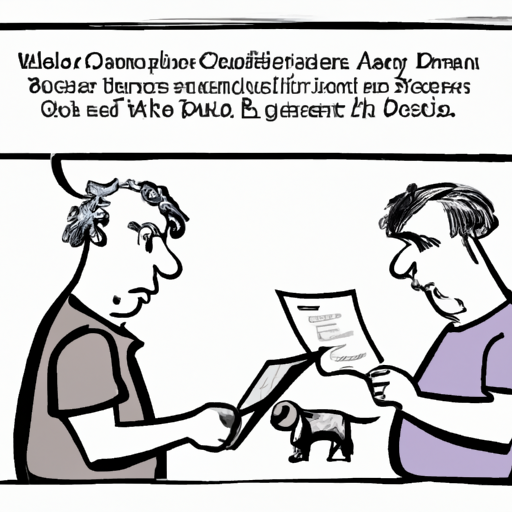Understanding Your Dog’s Behavior
First, let’s take a step back and view the situation from your dog’s perspective. Dogs, like humans, come with a variety of personalities, past experiences, and genetic predispositions. Sometimes, it’s a combination of these factors that lead to aggressive behavior towards other dogs.
- Genetics: Certain breeds may be more prone to aggressive behavior. Remember, however, that breed alone isn’t a surefire indicator of a dog’s temperament.
- Past Experiences: Dogs that have had negative experiences with other dogs in the past may develop aggressive behavior.
- Fear or Anxiety: Dogs often resort to aggression when they’re scared or anxious.
Identifying the Triggers
Identifying what triggers your dog’s aggressive behavior is the next step in managing it. This could involve observing your dog in various situations to understand what specifically leads to the aggression.
- Territory: Does the aggression occur when another dog enters your yard or home?
- Food or Toys: Does your dog become aggressive when other dogs are around their food or toys?
- New Dogs: Is the aggression directed towards unfamiliar dogs?
Training Techniques to Manage Aggression
Once you’ve identified the triggers, you can start implementing training techniques to manage your dog’s aggression.
- Positive Reinforcement: Reward your dog for calm behavior around other dogs. Rewards could be treats, praise, or petting.
- Desensitization: Gradually expose your dog to other dogs in a controlled environment, starting from a distance.
- Redirect Attention: Teach your dog to focus on you when other dogs are present.
Remember, patience and consistency are key when it comes to training.
| Training Technique | Purpose |
|---|---|
| Positive Reinforcement | Reward calm behavior |
| Desensitization | Gradual exposure to other dogs |
| Redirect Attention | Teach focus on you |
Seeking Professional Help
If your dog’s aggression seems unmanageable or if you’re uncomfortable handling it on your own, it’s perfectly okay to seek professional help. A professional dog trainer or a veterinary behaviorist can provide more personalized strategies based on your dog’s specific needs.
Preventive Measures
While managing your dog’s aggression, it’s equally important to take preventive measures to ensure the safety of other dogs and people.
- Always leash your dog in public places.
- Use a muzzle if necessary.
- Avoid situations that you know will trigger your dog’s aggression.
FAQ
Q: Why is my dog only aggressive towards certain dogs?
A: It could be due to a past negative experience with a similar-looking dog, or your dog may simply feel threatened by certain dogs due to size or behavior.
Q: Can I train my dog out of aggression on my own?
A: While mild aggression can often be managed with patience and consistent training, severe aggression is best handled by professionals.
Q: Is aggression more common in certain breeds?
A: While some breeds may be more prone to aggression due to their history or genetics, any dog can display aggressive behavior regardless of breed.
Q: Does neutering/spaying help with aggression?
A: It can help in some cases, especially if the aggression is linked to hormonal factors. However, it’s not a guaranteed solution for all aggression issues.
Q: What should I do if my dog attacks another dog?
A: It’s important to immediately separate the dogs to prevent further harm. Seek veterinary care if needed. It’s also crucial to consult a professional to address the aggressive behavior.



